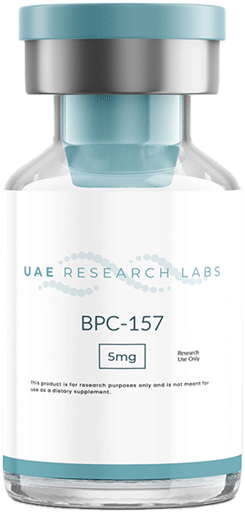

BPC-157 10mg
INTRODUCING
BPC-157 10mg
BPC-157, also known as Body Protective Compound 157, is a synthetic peptide derived from a naturally occurring sequence found in human gastric juice. It consists of 15 amino acids and has been studied for its potential therapeutic properties, including tissue repair, wound healing, anti-inflammatory effects, and protection against various forms of tissue damage.
Previous and ongoing research on BPC-157 has focused on several key areas:
- Wound healing and tissue repair: BPC-157 has been shown to accelerate the healing of various types of wounds in animal models, such as skin incisions, burns, and muscle injuries. It is believed to promote tissue repair by enhancing cell migration, angiogenesis (formation of new blood vessels), and collagen production.
- Anti-inflammatory effects: BPC-157 has demonstrated anti-inflammatory properties in multiple studies. It has been shown to modulate the production of pro-inflammatory and anti-inflammatory cytokines, helping to reduce inflammation and promote tissue repair in various injury models.
- Gastrointestinal protection: BPC-157 was originally discovered in gastric juice and has been shown to protect the gastrointestinal tract from damage caused by various agents, such as NSAIDs (nonsteroidal anti-inflammatory drugs), alcohol, and stress. It has been studied for its potential to treat ulcers, inflammatory bowel disease, and other gastrointestinal disorders.
- Neuroprotection: BPC-157 has been found to exhibit neuroprotective effects in animal models of brain injury, such as traumatic brain injury and ischemic stroke. It is believed to exert these effects by reducing inflammation, promoting angiogenesis, and modulating neurotransmitter systems.
Current research on BPC-157 is focused on further elucidating its mechanisms of action, optimizing its therapeutic applications, and investigating its safety and efficacy in various populations and medical conditions. Some of the ongoing research directions include:
- Long-term safety and efficacy: As BPC-157 is a relatively new compound, long-term studies are needed to establish its safety and efficacy in various populations and for different indications.
- Combination therapies: Researchers are investigating the potential benefits of combining BPC-157 with other peptides or compounds to enhance its effects or to target specific outcomes, such as wound healing, inflammation reduction, or neuroprotection.
- Specific medical applications: Studies are ongoing to explore the potential use of BPC-157 in the treatment or management of various medical conditions, such as skin ulcers, gastrointestinal disorders, inflammatory conditions, and neurological disorders.
- Optimization of dosing and administration: Research is being conducted to determine the optimal dosing and administration protocols for BPC-157 to maximize its therapeutic effects while minimizing potential side effects.
